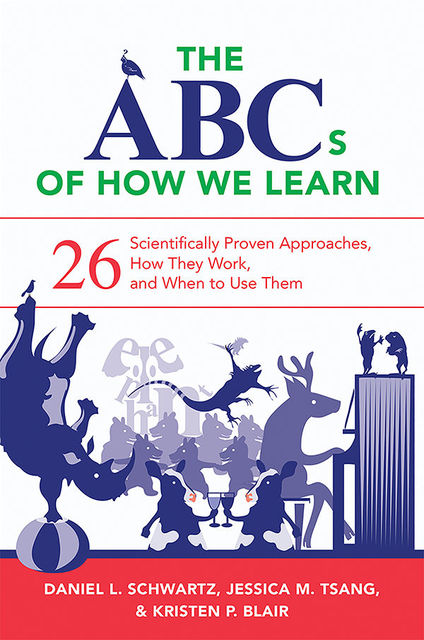
en
Dapatkan aplikasi:
iOS
·Android
The ABCs of How We Learn: 26 Scientifically Proven Approaches, How They Work, and When to Use Them
- Tentang
- Kutipan6
- Pembaca7
- Di rak buku
Buku ini saat ini tidak tersedia
570 halaman cetak
Kutipan
- Fatima Djamirzemembuat kutipan4 tahun yang laluPRECISE AND RELEVANT
Relevant and precise elaborations create better retrieval paths. For instance, in one study people read sentences in one four conditions (Stein & Bransford, 1979):
(a)The tall man purchased the crackers. (no elaboration)
(b)The tall man purchased the crackers. (come up with own elaboration)
(c)The tall man purchased the crackers that were on sale. (irrelevant elaboration)
(d)The tall man purchased the crackers that were on the top shelf. (relevant elaboration)
People read 10 sentences like these. Afterward, they took a memory test in which they had to provide the missing adjective for each sentence: The _____ man purchased the crackers.
The percentages of correctly remembered words were as follows:
(a)42 percent (No Elaboration condition)
(b)58 percent (Self-Elaboration condition)
(c)22 percent (Irrelevant Elaboration condition)
(d)74 percent (Relevant Elaboration condition)
The relevant elaboration provided a precise connection that marked the relevance of the man’s height for reaching the crackers. On average, receiving a relevant elaboration was even more effective than generating a self-elaboration. This is likely a result of some people making ineffective elaborations: when people in the self-elaboration condition did generate their own precise and relevant elaborations, their probability of recall was 91 percent (Stein & Bransford, 1979). - Fatima Djamirzemembuat kutipan6 tahun yang laluIt is a poor idea to try improving at archery without ever seeing where your arrows land. Nevertheless, many learning systems may not build in feedback. For instance, more experienced clinical psychologists do not produce better client outcomes than less experienced clinicians. This is because the structure of the professional system does not deliver reliable, objective feedback about patient outcomes. It is hard for the clinicians to learn what works. They are left to make their own judgments, which may be biased toward seeing success rather than places to improve (Saptya, Riemer, & Bickman, 2005).
- Fatima Djamirzemembuat kutipan6 tahun yang laluis a poor idea to try improving at archery without ever seeing where your arrows land. Nevertheless, many learning systems may not build in feedback. For instance, more experienced clinical psychologists do not produce better client outcomes than less experienced clinicians. This is because the structure of the professional system does not deliver reliable, objective feedback about patient outcomes. It is hard for the clinicians to learn what works. They are left to make their own judgments, which may be biased toward seeing success rather than places to improve (Saptya, Riemer, & Bickman, 2005).
fb2epub
Seret dan letakkan file Anda
(maksimal 5 sekaligus)

